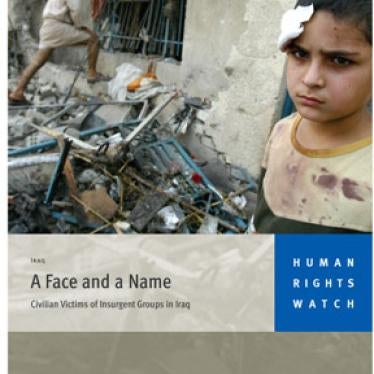(New York) - Egypt's announcement that it plans to ratify the Rome Statute and become a party to the International Criminal Court (ICC) sends an important message to Egyptians about the direction the country intends to take, Human Rights Watch said today. It will also help build momentum for further Arab state ratifications in the near future, Human Rights Watch said. Foreign Minister Nabil al-Araby also said that Egypt intended to join other international human rights treaties.
Human Rights Watch noted that the commitment comes as Egypt is starting criminal prosecutions of senior security officials for serious human rights abuses under the government of former president Hosni Mubarak. Egypt would be following in the footsteps of Tunisia, whose interim government approved Tunisia's accession to the Rome Statute on February 19, 2011. Jordan ratified the treaty in 2002. Comoros and Djibouti are the two other Arab League members who are party to the ICC.
"At a time when there is a major risk of crimes against humanity and war crimes in many countries in the region, the move by Egypt to ratify the Rome Statute sends a strong message that the days of absolute impunity for these crimes are ending," said Sarah Leah Whitson, Middle East and North Africa director at Human Rights Watch. "Egypt's trials of political and security officials will further strengthen that message."
Foreign Minister al-Araby announced that Egypt would ratify the Rome Statute at an April 19 news conference with Foreign Minister Guido Westerwelle of Germany. Al-Araby said that Egypt was "currently taking the required steps to join all United Nations agreements on human rights." He said that Egypt was working hard to become a "legally-constituted state" and that Egypt "wishes to follow the rule of law."
The ICC is a permanent international court with jurisdiction over crimes of genocide, war crimes, and crimes against humanity. The court's founding treaty, the Rome Statute, requires states to cooperate with the court, which includes the execution of arrest warrants. The ICC has no police force and thus depends on member states to enforce its orders.
On April 13 the public prosecutor formally announced that he was investigating Mubarak and his two sons on allegations of corruption and ordering the shooting of protesters. The first session of the trial of the former interior minister, Habib al-Adly, on charges of killing demonstrators during pro-democracy protests in January and February 2011, opened on Sunday, April 24 and was postponed to May 21.
On February 19, two weeks before his appointment as foreign minister, al-Araby, a former judge at the International Court of Justice, wrote an article in the independent daily Al Shorouk that said Egypt should "recognize the jurisdiction of the International Court of Justice as compulsory" and "ratify the optional protocols of all human rights conventions, including the Geneva Protocols."
To signal a break with abuses of the past that had become systematic, such as torture and enforced disappearance, Egypt should ratify the following treaties and take the following related actions as a matter of priority, Human Rights Watch said:
- 1. Ratify the Optional Protocol to the Convention Against Torture and other Cruel, Inhuman or Degrading Treatment or Punishment, which would allow for independent inspection of detention centers; and the Optional Protocol to the International Covenant on Civil and Political Rights, to allow individuals to file complaints before the UN Human Rights Committee under this covenant.
- 2. Ratify The Maputo Protocol on the Rights of Women in Africa, and allow individual petitions to the African Court on Human and Peoples' Rights.
- 3. Ratify the Convention on Cluster Munitions, the Mine Ban Treaty, and the International Convention for the Protection of All Persons from Enforced Disappearance.
- 4. Issue a standing invitation to all independent human rights experts from UN Special Procedures and review past recommendations made by these units; and make it a priority to put them in effect as part of the country's political transition.
"Foreign Minister al-Araby's announcement is very significant" Whitson said. "Now Egypt should make a clear break with the obstructionist foreign policy of its predecessor, and take a leading role in protecting human rights in Africa, at the UN, and on international justice."





